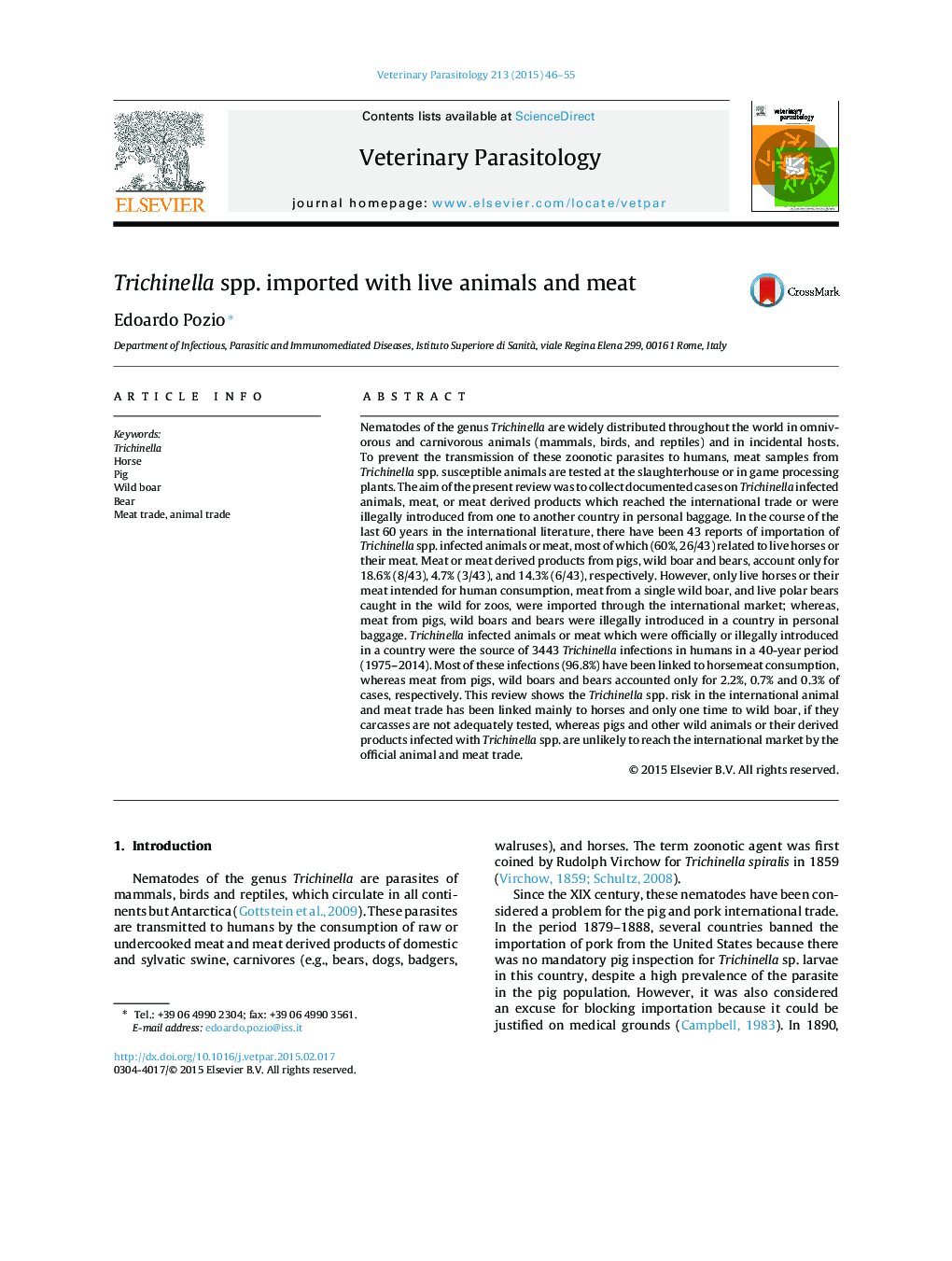| Article ID | Journal | Published Year | Pages | File Type |
|---|---|---|---|---|
| 2469979 | Veterinary Parasitology | 2015 | 10 Pages |
•Parasites of the genus Trichinella are globally distributed.•Horsemeat is the main source of trichinellosis in the international trade.•Trichinella infected pork has never been introduced in the international market.•Wild boar and bear meat has been illegally introduced in personal baggage.
Nematodes of the genus Trichinella are widely distributed throughout the world in omnivorous and carnivorous animals (mammals, birds, and reptiles) and in incidental hosts. To prevent the transmission of these zoonotic parasites to humans, meat samples from Trichinella spp. susceptible animals are tested at the slaughterhouse or in game processing plants. The aim of the present review was to collect documented cases on Trichinella infected animals, meat, or meat derived products which reached the international trade or were illegally introduced from one to another country in personal baggage. In the course of the last 60 years in the international literature, there have been 43 reports of importation of Trichinella spp. infected animals or meat, most of which (60%, 26/43) related to live horses or their meat. Meat or meat derived products from pigs, wild boar and bears, account only for 18.6% (8/43), 4.7% (3/43), and 14.3% (6/43), respectively. However, only live horses or their meat intended for human consumption, meat from a single wild boar, and live polar bears caught in the wild for zoos, were imported through the international market; whereas, meat from pigs, wild boars and bears were illegally introduced in a country in personal baggage. Trichinella infected animals or meat which were officially or illegally introduced in a country were the source of 3443 Trichinella infections in humans in a 40-year period (1975–2014). Most of these infections (96.8%) have been linked to horsemeat consumption, whereas meat from pigs, wild boars and bears accounted only for 2.2%, 0.7% and 0.3% of cases, respectively. This review shows the Trichinella spp. risk in the international animal and meat trade has been linked mainly to horses and only one time to wild boar, if they carcasses are not adequately tested, whereas pigs and other wild animals or their derived products infected with Trichinella spp. are unlikely to reach the international market by the official animal and meat trade.
